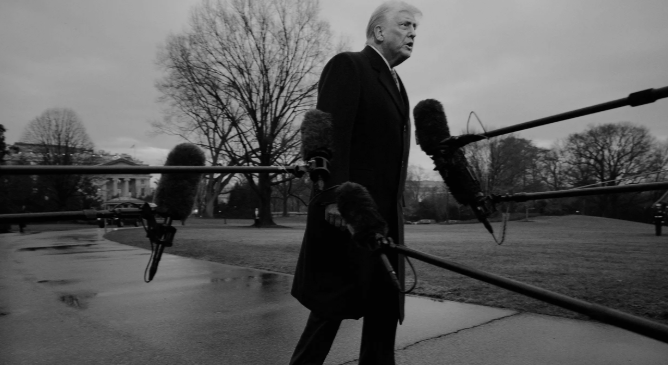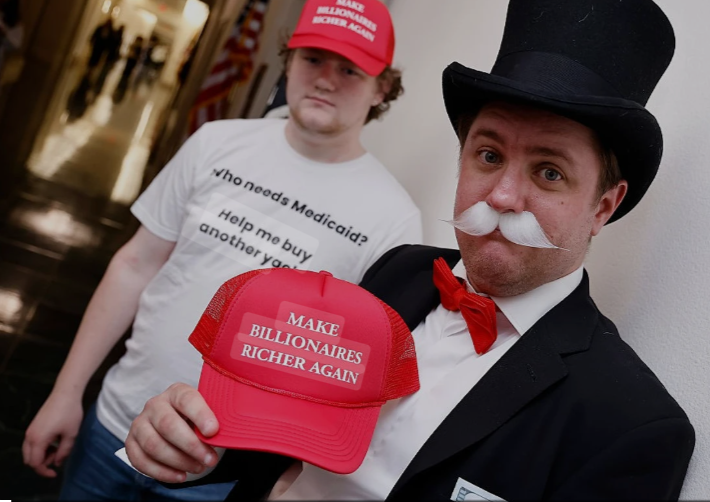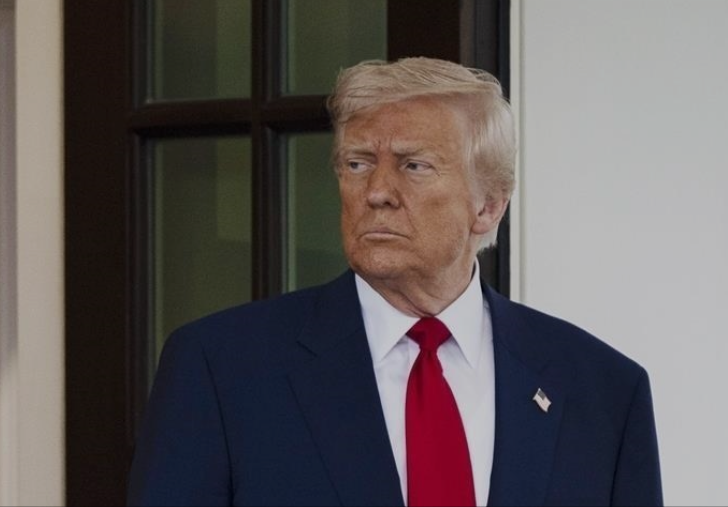What we are witnessing today in the United States is not just a story about press freedom under siege—it’s a coordinated power grab by a former president who is methodically dismantling the guardrails of democracy. Donald Trump, using tactics straight from the authoritarian playbook perfected by Hungary’s Viktor Orbán, is attacking the institutions that hold truth to power: universities, the legal system, cultural institutions—and most critically, the media.
And disturbingly, he’s succeeding.
Once-defiant media giants like CBS and The Washington Post are now capitulating to Trump’s demands. In the words of his own press secretary, these institutions have “bent the knee.”
CBS: Capitulation Through Extortion
Just before the 2024 election, Trump filed a meritless $10 billion lawsuit against CBS over its “60 Minutes” interview with then–Vice President Kamala Harris. The suit claimed that CBS’s programming was unlawfully biased and intended to tilt the election—a blatant attempt to intimidate journalists and chill political coverage.
Top legal experts immediately called the lawsuit what it was: a baseless, cynical attack on press freedom. First Amendment icon Floyd Abrams warned it struck at the very heart of constitutional protections for the press. Harvard Law’s Rebecca Tushnet labeled it “ridiculous junk,” and media attorney Charles Tobin said plainly: “This is a frivolous and dangerous attempt by a politician to control the news media.”
But then Trump won the presidency.
Shortly thereafter, Shari Redstone—the controlling shareholder of CBS’s parent company, Paramount, and a known Trump ally—pushed for the network to settle the lawsuit. Despite the frivolous nature of the claim, CBS entered mediation. Trump, sensing weakness, doubled his damages claim to $20 billion and took to social media to demand CBS lose its broadcasting license entirely.
The cost of settling such a lawsuit isn’t just monetary. The real price is CBS’s independence. On April 22, longtime “60 Minutes” executive producer Bill Owens resigned, citing editorial interference. “Over the past months, it has become clear that I would not be allowed to run the show as I have always run it,” Owens wrote, in a striking moment of media self-awareness. This wasn’t just a personnel change—it was a warning flare.
The Washington Post: Compromised from the Top
The surrender didn’t stop with CBS. Just days before the election, The Washington Post editorial board was preparing to endorse Kamala Harris. But that endorsement never saw the light of day. Jeff Bezos, owner of the paper and founder of Amazon, personally intervened and killed the endorsement. For the first time in decades, the Post remained silent during a presidential election.
Hours later, Bezos’s aerospace firm Blue Origin held a meeting with the Trump administration. After the election, Bezos himself visited Mar-a-Lago and dined with the president-elect. Soon after, Amazon made a $1 million donation to Trump’s inaugural fund and struck a $40 million licensing deal for a Melania Trump documentary—$28 million of which reportedly goes directly to Melania.
Weeks later, Bezos announced a dramatic editorial shift for The Washington Post. The paper would now exclusively advocate for “personal liberties and free markets”—a phrase widely seen as code for conservative ideology—and cease publishing dissenting perspectives on these topics. Opinion editor David Shipley and several columnists resigned in protest. Over a quarter-million subscribers canceled their accounts.
The Los Angeles Times: A Pattern Emerges
The Los Angeles Times also silenced its voice. In 2020, the paper endorsed Joe Biden and sharply criticized Trump. But in 2024, the endorsement of Kamala Harris was blocked by billionaire owner Patrick Soon-Shiong. Editorial staffers resigned in protest, and thousands of readers followed. Soon-Shiong later killed another editorial critical of Trump’s cabinet nominees, signaling that the paper had joined the wave of self-censorship now spreading across American media.
Facebook: Power by Platform
The most dangerous lever of influence, however, may lie with social media. One-third of all U.S. adults now get their news from Facebook, owned by Meta. After Trump’s return to power, Meta CEO Mark Zuckerberg met with him at Mar-a-Lago and donated $1 million to his inaugural fund. Soon after, Zuckerberg quietly shut down Meta’s third-party fact-checking partnership on Facebook.
The justification? That fact-checking was “biased” and amounted to censorship—a claim directly lifted from Trump’s talking points. Facebook is now an unchecked conduit for misinformation, with billions of users and virtually no accountability.
Public Broadcasting: The Final Blow
Now, Trump is pushing Congress to defund public media entirely, targeting PBS and NPR in particular. These institutions—among the most trusted in American journalism—are at risk of collapse under the weight of partisan retribution.
Orbán’s Playbook, American Edition
What we are seeing mirrors Viktor Orbán’s transformation of Hungary. There, oligarchs bought out media outlets and reshaped them into mouthpieces of the ruling party. Government ad dollars were funneled exclusively to pro-regime outlets. Critics were silenced. Orbán didn’t just change the media—he rewrote the national narrative.
Trump is now doing the same in America.
His takeover of media companies, legal pressure campaigns, intimidation of journalists, and collusion with billionaire elites amount to a hostile restructuring of the free press. Each settlement, each resignation, each editorial compromise moves us one step closer to a media environment that looks more like Hungary’s than a democracy’s.
This is not just about journalism. It’s about power. When media becomes a mouthpiece for the powerful, the truth becomes a casualty—and democracy, a memory.



